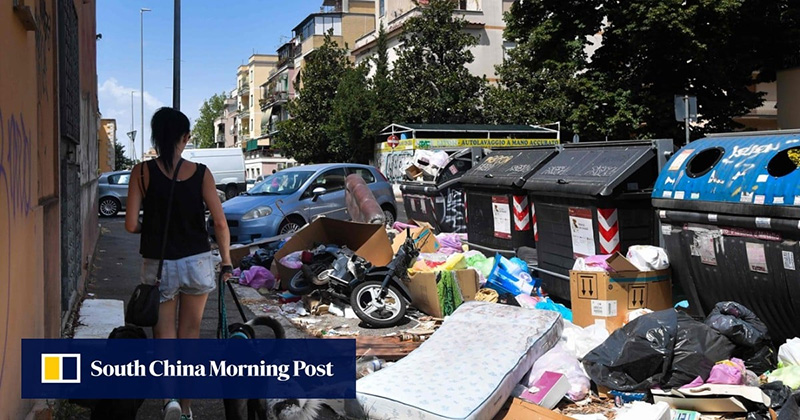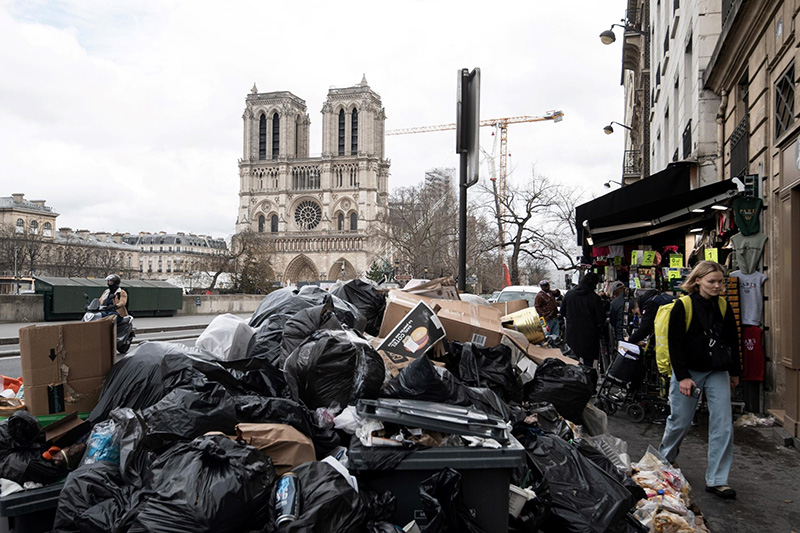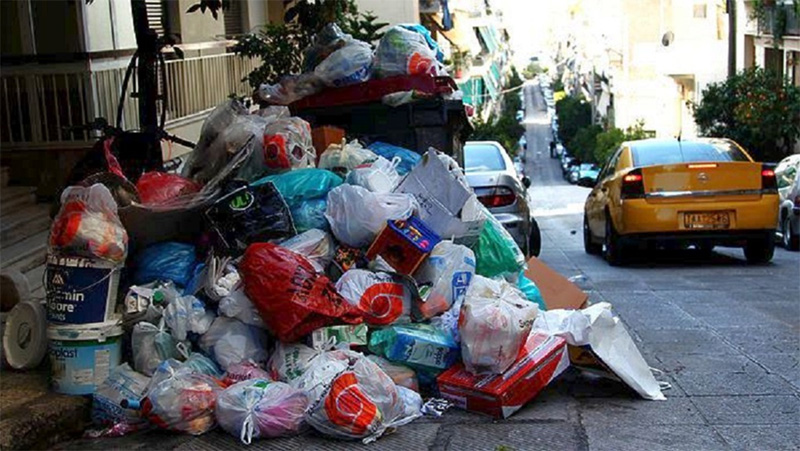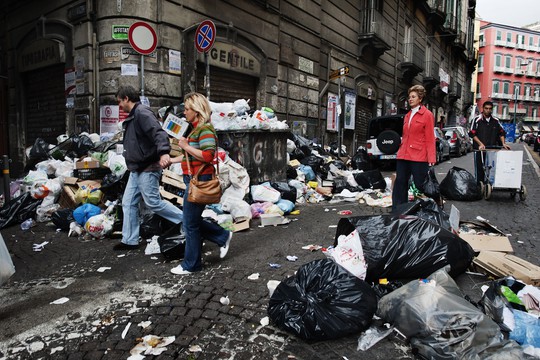This is Europe today…
They acutely felt in Eastern Europe the need to discuss the current policy of the leadership of the European Union, which is leading to an acute crisis in various areas of life – from the economy to morality and culture. Europe must prepare for the coming multipolar, post-Western hegemony world. Balázs Orbán, a member of the Hungarian parliament and political director for Prime Minister Viktor Orbán, but he is not related to Prime Minister Orban, just only a namesake, writes about this with great concern from Hungary at an American magazine “National Interest”.
Over the past three decades, the world has undergone profound transformations. Political and economic restructuring has led to the erosion of the prevailing Western hegemony. However, it is incorrect to claim that the West is being replaced by a non-Western hegemonic force. Instead, what we observe is a leveling off in the ongoing competition between the West and the East.
The West’s dominance over international relations, resting upon three key pillars, is visibly diminishing.
The first pillar was the West’s longstanding dominant position as the global economic powerhouse for two centuries. The second pillar involved the establishment of institutional bodies in international relations and trade by the West, granting them the ability to shape the rules of globalization. The third pillar relied on the idea that the United States, as the hegemonic superpower after the collapse of the USSR, would collaborate with Europe to promote the neoliberal political and economic model, aiming for a more peaceful world. As the prevailing belief of that era declared, we had reached “the end of history.” However, all three pillars are now displaying signs of declining influence.
The premises of the third pillar in particular have failed remarkably. The imposition of the neoliberal political and economic model not only resulted in alienation from the rest of the world but, paradoxically, brought together its adversaries in increasingly closer cooperation. The events of the past year have undeniably demonstrated this, leading even some of the most avid proponents of “the end of history” to abandon their belief in it.
The East has witnessed a remarkable surge in its share of global economic output, at the expense of the West. Back in 1990, the Western world’s dominance over the world’s economic output was exceeding the 50 percent mark. Fast forward to today, and that figure has drastically decreased to a mere 30 percent. These trends will continue as the center of economic gravity continues to shift further toward the East.
The geographical reality that most of the world’s raw materials and energy resources are located outside the West has further exacerbated our competitiveness. Although the United States enjoys a slight advantage in this regard, largely due to its vast shale oil and gas reserves, the West has been unable to fully compensate for this disadvantage.
Demographic trends also work against the West. Regardless of the metric used, the world’s population surpasses the 8 billion mark, with a staggering 7 billion individuals living in non-Western countries.
The realm of technology is also fiercely contested. Emerging players invest heavily in research and development, almost matching the expenditure of established giants. This head-to-head race involves various nations, with notable progress seen in Eastern electric cars and battery technologies — areas of significant importance for Central Europe.
Central Europe is now confronted with a profoundly transformed geopolitical and geoeconomic landscape. The future unfolds as a multipolar world, with the West being just one of several power centers. Despite this, Central Europeans are eager to see the West effectively compete with the non-Western world. Our aspiration is for a prosperous Europe, where we play a significant role in its achievements.
In an era where mutual understanding is crucial to navigating through challenging times, Europe finds itself entangled in divisive issues. One such concern revolves around identity and values. Western European nations and their Central European counterparts often differ in their approaches to immigration, the family unit, national roles, the essence of liberal democracy, and the protection of children. These topics often become intertwined, leading to a conflation of issues and a disregard for the diversity.
When confronted with these contentious issues, we are faced with three fundamental choices. We can choose to settle the dispute once and for all by declaring one side the victor and the other the vanquished. Alternatively, we can find ourselves engaged in an enduring ideological war of attrition. However, there exists a third avenue worth exploring: removing these contentious matters from the agenda altogether and focusing on areas where genuine cooperation is possible.
Within the European Union, economic strength stands as the most significant political capital. Central European states, constituting 8 percent of the EU’s GDP, have emerged as the bloc's fifth-largest economic powerhouse. Notably, this economic ascent has been accompanied by an extraordinary growth rate outpacing that of Western Europe over the past twelve to thirteen years. Considering these factors, a Central European perspective not only deserves attention but also careful consideration from our Western partners.
Firstly, we propose to maintain the original idea that a successful European Union relies on the cooperation of independent and sovereign Member States. Preserving our national sovereignty, which Central European people have fought for over centuries, as well as the distinct political and cultural identities of European countries, is crucial.
Secondly, Europe should pursue EU expansion. The conflict in Ukraine has starkly highlighted the EU’s limited control over its immediate neighborhood, and enlargement could offer a partial solution. However, this can only succeed if we reduce the overcentralized bureaucratic power in Brussels. For instance, decisions on foreign policy still require unanimity, but Brussels aims to move towards qualified majority voting with the support of some larger Member States. Foreign policy is an essential aspect of sovereignty, and smaller states in our region are particularly keen on preserving it. Therefore, an integration where larger member states can effectively impose their will on smaller member states is far from desirable for those aspiring to join.
Thirdly, it is important for Europe to establish its own standing army as a means to defend itself, thereby reducing its dependence on the United States. By developing its own military capabilities, Europe can assume greater responsibility for its defense and share the burden with the United States. This would foster a more balanced partnership between Europe and the United States, making Europe stronger and more self-reliant while simultaneously promoting a more equal distribution of security responsibilities within the transatlantic alliance.
Fourthly, it is imperative to strengthen Europe’s competitiveness, and a critical factor in attaining this objective lies in securing affordable energy access. Without affordable energy, the decline of European industry and the precarious situation faced by the struggling European middle class would become inevitable. The green transition should be pursued gradually, avoiding outright bans on specific energy sources and suppliers.
Lastly, Europe must preserve its Christian values within its political framework. Central Europeans emphasize this not as a fashionable conversion program but because they believe that Christian values and teachings can be translated into political and economic principles that contribute to building a better, fairer, and safer Europe. These values establish a shared cultural foundation upon which European states can collaborate.
… But before the “Revival of Europe” it would be necessary to remove garbage from the streets.
Rome:

Paris:

London:

Greece:

Germany:

read more in our Telegram-channel https://t.me/The_International_Affairs

 12:12 19.07.2023 •
12:12 19.07.2023 •























